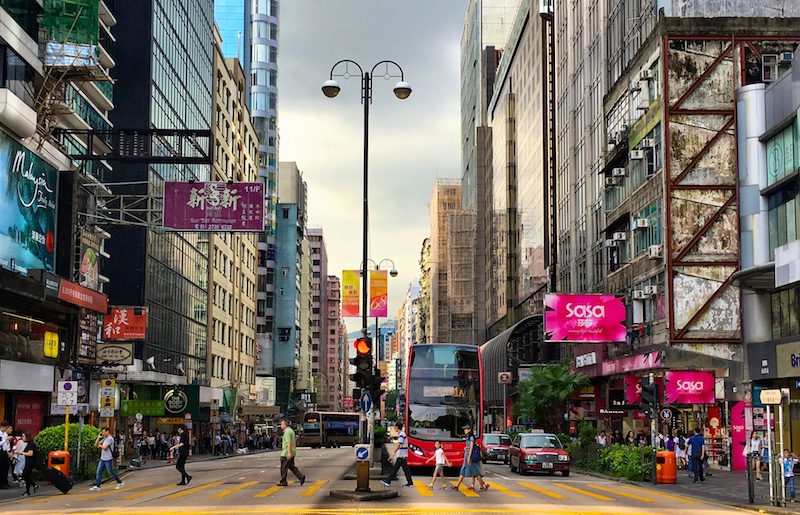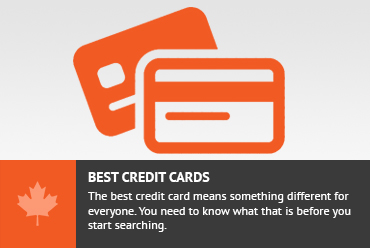It’s easy to travel cheaply in cheap countries (like Thailand and Peru). But to travel cheaply in expensive countries take more finesse. Here are some tips, based on this month’s reader question.
Dear Nora,
I want to see the world, but I don’t have a big budget, and I want to see more than just the broke backpacker circuit. Seems to me you’ve lived in some pretty expensive places. How’d you do it? – Graeme
I learned how to travel full-time for less than $17,000/year (all in! Including business/personal expenses and insurance) in places like Hawaii, Australia, and Switzerland, which are notoriously expensive spots. I continued on to live and travel through the Caribbean, Scandinavia, Japan, and I’m currently writing this article from Hong Kong – one of the most expensive cities/countries in the world.
In this article I’ll share some actionable suggestions for how to travel cheaply in expensive countries around the world.
GENERAL TIPS TO TRAVEL CHEAPLY IN EXPENSIVE COUNTRIES
Here are some tips and techniques – most of which I have personal experience with – to travel cheaply in expensive countries. Not all of these tips will work for you, so mix ‘n’ match to your heart’s (and wallet’s) content.
Make Local Friends
The best way to learn how to travel cheaply in expensive countries is to do as the locals do. And the best way to learn how to do as the locals do is to meet some locals, and ask them for their advice! Here are a few ways to make local friends:
Attend local Couchsurfing meetings.
Couchsurfing is about more than a free place to sleep. By attending meetings, you can connect with locals enthusiastic about cultural exchanges with travellers.
Do a free tour with a local.
Global Greeter Network is a network of locals who want to connect with travellers and show off their city.
Attend special interest group meetings.
I used to be a Rotarian and a Toastmaster; both are international organizations with chapters around the world. Whenever I attended a meeting abroad I was accepted with great enthusiasm and made lots of new friends who were eager to share all kinds of local secrets, and often a place to stay as well (bonus!). Find a group with interests that match your own and attend their meetings. Instant friends!
Save on Accommodation
Accommodation is usually the biggest travel expense, so if you can save money here, you’ll have done most of the work required to travel cheaply in expensive countries. Here are some tips:
Get free accommodation.
Nothing better than free! This is the biggest reason I have been able to (and continue to) travel cheaply in expensive countries. Every single expensive country I’ve visited has involved some free accommodation. You can do this through Couchsurfing, volunteering, house-sitting, home exchanges, and more. (For more info, see How to Get Free Accommodation Around the World)
Stay with locals.
Sites like AirBnB and Flipkey offer opportunities to bunk up with a local in their home for way less than most hotels charge. Sometimes the accommodation is a spare room, sometimes you have the place to yourself. The range of accommodation varies greatly. AirBnB is how I managed to stay in Macau for four nights for less than the cost of the cheapest hotel for one night.
Save on Transportation
Besides accommodation, transportation is your next biggest travel expense. Here are some tips:
Foot power.
If you’re staying somewhere central, consider walking more! While in Hong Kong, I’ve been walking everywhere, even if it takes an hour to get there; I love the exercise, and I see so much more along the way.
Pedal power.
Perhaps walking is impractical given where you’re staying. How about a bicycle? Notoriously expensive cities like Copenhagen and Amsterdam are perfect for exploring on two wheels.
Use relocation services.
Fancy a road trip? Many car/campervan rental agencies require their vehicles to be moved from one place to another. You can get behind the wheel for a deep discount by being their driver. Check out immova to find relocation opportunities in a variety of expensive countries.
Share a ride.
With ride sharing services, you can get from A to B with a local or another traveller who is going your way. You’ll all save money, and by carpooling you can even feel good about a smaller environmental footprint.
Use frequent flyer miles.
Most of my long-haul flights are in business class, for less than the price of an equivalent economy ticket. I collect miles passively through credit card spending, actively through online promotions, and whenever I can with cheap domestic flights. Then when it’s time for a long-haul flight, I’ve got the miles to fly in style. I recently discovered a brilliant hack to do a long-haul flight (eight hours) in business class for the same number of miles needed for a domestic flight. Watch this short video to see how I did it.
Save on Food
Depending on where you’re going, you can pay a little or a lot for food. In Tokyo, I was appalled at the cost of fresh fruit (and delighted at the cost of sushi). In Hong Kong, I was pleasantly surprised that food in general is cheap….if you know where to eat. Here are some ideas that can be applied just about anywhere:
Visit supermarkets/bakeries before closing time.
Obviously supermarkets are cheaper than restaurants if you have the ability to cook meals, but even for prepared food, if you visit a couple of hours before closing time, you’ll often find marked-down produce and ready-made meals that they need to offload before they close. In Australia, bakery goods are often more than 50% off after 6pm. In Hong Kong and Tokyo, prepared meals are marked down significantly.
Don’t buy imported food.
While perusing the supermarket, don’t be distracted by expensive imported food. Shop as the locals do, and save your “comforts of home” for your return home.
Kebabs, anyone?
Around the world, kebabs and falafel stands of the street food variety are generally cheap. I’ve eaten cheap kebabs in Canada, all over Europe, Australia, and even Japan.
Street food.
Kebabs aside, street food in general is usually cheap and cheerful, and is how many locals sustain themselves. Residents of Japan and Hong Kong don’t tend to cook due to long working hours and/or cramped living quarters; instead they eat out, and usually various forms of street food at that.
Make lunch your biggest meal.
Not only is this generally healthier, but it’s usually cheaper too, since most restaurants mark up prices for the dinner crowd. If you are going out for dinner, look for early bird specials, which are common in Europe and the U.S.
Dumpster Dive?
It’s an extreme tactic (and sometimes one with legal implications), so tread carefully. But 40% of food produced in developed (aka expensive) countries is thrown away, and it’s perfectly good, and often totally packaged (thus sanitary). This isn’t a glamorous way to spend your vacation, but you could save some big money – and waste. I haven’t done this, but I wouldn’t hold it against you if you did.
Save on Attractions
Although the best way to save money on touristy attractions is to avoid them, some attractions are worth doing. Here are some ways to save money on seeing your expensive destination cheaply:
Use inexpensive local guides.
Through websites like Withlocals and Local Guddy, you can pay a small fee to do a tour with a local expert. Many of these tours are private, which affords you the ability to ask all the questions your guide can handle about how to travel cheaply in expensive countries like theirs. I’ve made a few friends this way who I am still in touch with.
Research free admission days.
Many museums and art galleries (especially in Europe) offer free admission on certain days of the week or times of day. An online search should reveal such opportunities in your destination.
Look for city passes.
Many large cities offer passes that include transportation, admission to attractions, and discounts on food for one price. Sometimes they’re a great deal, and other times not. It depends on what you want to do while you’re visiting and how much time you have.
Other Savings Tips
Here are some other ways to travel cheaply in expensive countries:
Go in the off season or shoulder season.
Sometimes there’s a good reason for an off-season, such as inclement/dangerous weather. Other times, the off or shoulder season is actually an ideal time to visit, and comes with the additional perk of being cheaper. Bali’s high season is July and August, but only because those are winter months for Australians who come in droves. In my experience it’s much nicer to visit in September and October. (Granted, Indonesia isn’t exactly an expensive country).
Stay off the main streets.
Looking for your morning coffee or a light lunch in Paris? For goodness sake, get off the Champs Elysees. Explore small side streets and areas away from big tourist beat, and you’ll usually find cheaper – and better – coffee and ambiance.
Google “free things to do in X”.
You’ll be amazed at what comes up when you do searches like these!
Go rural.
Although not strictly true, staying somewhere more rural is usually cheaper than a big city. It depends on what kind of traveller you are, and what country you’re visiting. But generally speaking, I spend way more money when staying in cities vs rural locations. And personally, I prefer the nice scenery and fresh air.
COUNTRY-SPECIFIC TIPS TO TRAVEL CHEAPLY
Are any of the expensive countries below on your destination list? If so, heed the following country-specific tips:
Scandinavia (including Iceland)
- Drink at home/your hotel. There’s a reason the clubs don’t open until late; everybody drinks at home first, because the cost of buying drinks out is ridiculous!
- Buy your alcohol at duty-free. Even the locals do this.
- Eat at outside food vendors and food trucks. The food is great, and will cost you a fraction of what restaurants charge (which is obscene). In Iceland, hot dogs are the national snack food, and better quality than what you get in North America.
- In Iceland, find alternatives to the Blue Lagoon. There are plenty of alternatives if you look. Even cheaper are the public pools, which are geo-thermally heated (but not as aesthetically pleasing).
Switzerland
- Go to the supermarket. If you have a kitchen, cooking at home will save you big bucks. I was surprised to discover that some organic produce is cheaper than the non-organic alternatives!
- Eat out at “supermarket cafeterias”…which are much nicer than they sound, and will save you a bundle.
Japan
- Get a rail pass, and do it before you leave home. JR Rail offers sweet deals for foreigners, with the caveat that you must order and receive your tickets by mail before you arrive. Some of the passes include deals for other forms of transportation and even accommodation/attractions.
Australia and New Zealand
- Look for relocation deals. Because so many people rent campervans in Australia and New Zealand and drive them across the country, they’re hot destinations for relocation services. You can rent a vehicle for as little as $1/day for the privilege of taking it on an epic road trip. Drive Now has good deals for campervan relocations.
- Buy a car. In both countries it’s common for travellers visiting for a couple of months to buy a cheap car and sell it before they leave (often for the same cost they bought it for). Some cars (such as station wagons) are even big enough to sleep in the back!
The Cost of Living/Travelling Abroad
The cost of living abroad can be surprising. For example, would you have thought that a meal at McDonalds costs over $18 in Angola? Or that a chunk of cheese in Hong Kong runs $23? Or that internet in Ethiopia is over $185/month?? And let me tell you, if you only drink bottled mineral water, stay away from Lichtenstein where it will cost you over $12/litre.
Here’s a fun infographic to put it all in perspective, and perhaps give you a few additional tips to travel cheaply in expensive countries:











